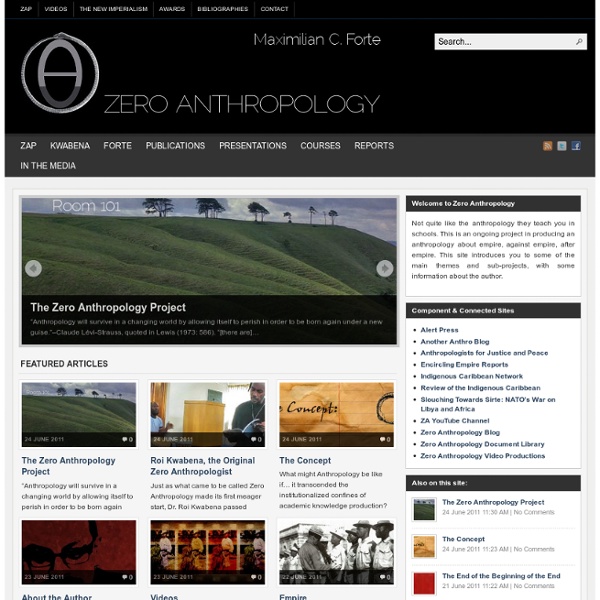



Centre for Visual Anthropology - Center for Visual Anthropology - ANU ANU is home to a dynamic community of scholars working across the broad fields of visual anthropology and visual culture research. The ANU Centre for Visual Anthropology (CVA) draws its membership from across the University. Among our members are several internationally renowned ethnographic filmmakers and anthropologists. Our research and teaching interests are broad and diverse. A number of us are committed to producing work that is multi-disciplinary in scope. We all share a commitment to foregrounding the visual as a distinctive prism through which to comprehend human experience and diverse social phenomena. ANU is the only Australian university to offer courses in the practical and conceptual methods of visual anthropology at undergraduate and postgraduate levels, as well as fostering a growing program of PhD and postdoctoral scholarship. Please join our mailing list
Una antropóloga en la luna: blog de antropología. Open Access Anthropology — Promoting Open Access in Anthropology - blog.openaccessanthropology.org (HTTP) anthropology in the news blog - www.antropologi.info (HTTP) Anthropologist Tereza Kuldova, author of many book reviews here on antropologi.info has recently defended her PhD-thesis Designing Elites: Fashion and Prestige in Urban North India". Now she has turned her thesis into a museum exhibition and an edited volume called Fashion India. Spectacular Capitalism. Researching fashion means researching society and economic systems at large, she explains in this antropologi.info interview. In her case studying fashion means especially studying inequalities. antropologi.info: So you turned your PhD thesis both into an exhibition and then into an edited volume? Tereza Kuldova: Yes, that is correct. – So I went on a curatorial hunt for the exhibition objects to India and spent one month shopping in New Delhi, Mumbai, Kolkata and Lucknow and shipping huge boxes of ethnographic artefacts and props for the exhibition to Oslo. Tereza Kuldova: "We all need to understand how this multi-billion fashion industry operates and rethink our wardrobes accordingly."
Savage Minds | Notes and Queries in Anthropology — A Group Blog - savageminds.org (HTTP) Practicing Ethics and Ethical Practice: Anthropology, Science, and the Social | Items and Issues One of the first signs under which the Obama administration was placed was that of a “new era of responsibility.” We assume that he meant “social responsibility.” And this has been accompanied by regular calls for increased transparency in government and for the revitalization of ethics as much more a part of our public life, in government, business, religion, and science. But there has also at times been a culture war–type fervor accompanying recent discussions of ethics, perhaps more than anywhere else regarding the ethics of science and the ethical conduct of scientists, where the role of science is drawing closer public scrutiny from government and watchdog groups, but also from the participants in scientific research. Ethical debate among social scientists is part of a bigger picture, punctuated by spectacular ethics crises, such as Abu Ghraib, the financial meltdown, the BP oil spill, and Wikileaks. To embrace anthropology’s plural identity is not to reject ethics.